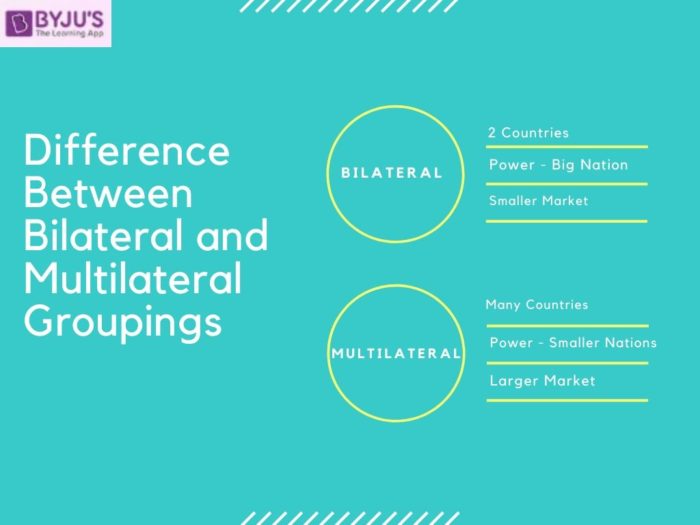Strengthening Bilateral Security: China-Indonesia Relations

Table of Contents
Economic Interdependence and Security Implications
The economic relationship between China and Indonesia is a cornerstone of their bilateral security. Deep economic ties create both opportunities and vulnerabilities, shaping their security cooperation and competition.
The Belt and Road Initiative (BRI) and Infrastructure Development
The Belt and Road Initiative (BRI) has significantly impacted Indonesia's infrastructure development. BRI projects, encompassing massive investments in ports, railways, and energy infrastructure, aim to enhance connectivity and boost economic growth.
- Increased connectivity: BRI projects improve Indonesia's internal connectivity and its links to regional and global markets.
- Potential debt traps: Concerns exist regarding the potential for unsustainable debt burdens stemming from BRI-funded projects. Transparency and sustainable financing models are crucial to mitigate these risks.
- Job creation: BRI projects have led to significant job creation in Indonesia, boosting economic activity and social stability.
- Enhanced strategic access: Improved infrastructure could potentially enhance China's strategic access to key Indonesian resources and facilitate military movements, raising security concerns for some.
The benefits of improved infrastructure are undeniable, facilitating trade and boosting economic growth. However, careful management of debt levels and transparent contractual agreements are essential to avoid potential security risks linked to excessive Chinese influence. The balance between economic development and strategic autonomy is a critical aspect of strengthening bilateral security.
Trade and Investment Flows
Bilateral trade and investment flows between China and Indonesia are substantial and growing. China is a major trading partner for Indonesia, with significant trade in resources, manufactured goods, and agricultural products.
- Resource dependence: Indonesia's dependence on China as a market for its resources (e.g., palm oil, minerals) can create economic vulnerabilities.
- Technological transfer: Increased investment could potentially facilitate technological transfer to Indonesia, boosting its industrial capacity.
- Market access: Enhanced market access for Indonesian products in China benefits its economy and strengthens the bilateral relationship.
- Economic vulnerabilities: Over-reliance on any single trading partner can create economic vulnerabilities, requiring diversification strategies to mitigate these risks.
Analyzing the complex interplay between economic interdependence and security is crucial. Diversifying trade partnerships and fostering sustainable economic growth are key to safeguarding Indonesia's economic sovereignty and strengthening bilateral security.
Maritime Security Cooperation and Challenges
The maritime dimension is paramount in China-Indonesia relations, particularly given overlapping claims in the South China Sea. Managing these overlapping claims effectively is crucial for regional stability.
South China Sea Disputes
The South China Sea is a complex arena with overlapping territorial claims. Indonesia and China have differing perspectives on maritime boundaries and resource rights. However, both nations are committed to resolving these disputes peacefully.
- Joint patrols: While limited, joint patrols could contribute to de-escalation and confidence-building in contested areas.
- Code of conduct negotiations: The ongoing negotiations for a Code of Conduct in the South China Sea are a vital step toward establishing a rules-based order.
- Freedom of navigation: Both countries emphasize the importance of upholding freedom of navigation and overflight in the South China Sea.
- Resource exploration: Joint resource exploration frameworks could promote cooperation while minimizing friction over overlapping claims.
Navigating the South China Sea disputes requires diplomacy, adherence to international law, and a commitment to peaceful conflict resolution. Transparency and communication are crucial in managing these sensitive issues and avoiding escalatory actions.
Counter-Terrorism and Transnational Crime
Cooperation on counter-terrorism and transnational crime is another essential aspect of strengthening bilateral security. Both countries face similar threats, requiring a joint approach.
- Information sharing: Strengthening intelligence sharing mechanisms is crucial for effectively combating terrorism and transnational crime.
- Joint military exercises: Joint military exercises enhance interoperability and capacity building in counter-terrorism operations.
- Intelligence cooperation: Effective intelligence cooperation is crucial for disrupting terrorist networks and criminal activities.
- Capacity building: Providing training and assistance to enhance Indonesia's counter-terrorism capacity strengthens regional security.
Collaboration on non-traditional security threats demonstrates the shared interests of both countries and contributes significantly to strengthening bilateral security.
Military-to-Military Relations and Defense Cooperation
Military-to-military relations play a significant, though often subtle, role in shaping bilateral security. The nature and extent of this cooperation are constantly evolving.
Military Exchanges and Exercises
Military exchanges and exercises between China and Indonesia are increasing but remain relatively limited compared to other bilateral relationships.
- Joint training: Joint training exercises enhance interoperability and improve the capabilities of both militaries.
- Weapons sales: While limited, potential Chinese arms sales to Indonesia could significantly alter the regional military balance.
- Technology transfer: Technology transfer in defense sectors could enhance Indonesia's military capabilities.
- Personnel exchanges: Personnel exchanges foster trust and understanding between the two militaries.
Increased military cooperation could enhance interoperability and confidence, but also raises potential concerns regarding power imbalances and transparency.
Balancing Relations with Other Major Powers
Indonesia’s strategic position necessitates a delicate balancing act in its relations with major powers. It maintains relationships with the US and Australia alongside its growing ties with China.
- Strategic autonomy: Indonesia prioritizes maintaining its strategic autonomy, avoiding excessive dependence on any single power.
- Non-alignment: Indonesia’s non-aligned stance allows it to pursue independent foreign policy objectives.
- Hedging strategies: Indonesia employs hedging strategies to manage its relationships with various great powers.
- Regional partnerships: Indonesia actively engages in regional partnerships like ASEAN to promote stability and cooperation.
Indonesia’s ability to navigate the complex dynamics of great power competition is crucial for maintaining its sovereignty and fostering regional stability.
Conclusion
The relationship between China and Indonesia is characterized by a complex interplay of economic interdependence, maritime security challenges, and military-to-military engagement. Strengthening bilateral security requires careful management of these diverse aspects to prevent escalation and foster mutual trust. Successful navigation depends on transparent communication, adherence to international law, and a commitment to regional stability.
Further research and dialogue are vital for a comprehensive understanding of the multifaceted dynamics impacting the strengthening of bilateral security between China and Indonesia. Continued engagement with this crucial relationship is imperative for fostering peace and prosperity in the Indo-Pacific region. Let's continue the conversation on strengthening bilateral security: China-Indonesia relations.

Featured Posts
-
 The La Wildfires A Case Study In The Ethics Of Disaster Betting
Apr 22, 2025
The La Wildfires A Case Study In The Ethics Of Disaster Betting
Apr 22, 2025 -
 U S China Tensions A Deep Dive Into The Growing Risk Of A New Cold War
Apr 22, 2025
U S China Tensions A Deep Dive Into The Growing Risk Of A New Cold War
Apr 22, 2025 -
 Ukraine Faces Brutal Russian Air Barrage As Us Urges Peace Negotiations
Apr 22, 2025
Ukraine Faces Brutal Russian Air Barrage As Us Urges Peace Negotiations
Apr 22, 2025 -
 Beyond The Headlines Analyzing Blue Origins Failures In Comparison To Katy Perrys
Apr 22, 2025
Beyond The Headlines Analyzing Blue Origins Failures In Comparison To Katy Perrys
Apr 22, 2025 -
 Are Tik Toks Tariff Workarounds Legal An Analysis
Apr 22, 2025
Are Tik Toks Tariff Workarounds Legal An Analysis
Apr 22, 2025
